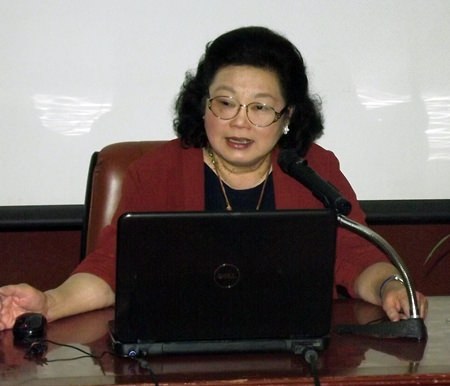Experts from three major hospitals helped Pattaya-area health care officials understand and address Thailand’s substantial problem with “slow-growth children.”
Doctors and researchers from Ramathibodi, Mahidol University, and Buddhachinaraj hospitals joined executives from the Paidi Institute at the June 24 workshop focused on Thailand’s more than 200,000 children suffering from autism, learning difficulties and attention-deficit disorders.
 Asst. Prof. Nittaya Kotchaphakdee, advisor to the National Institute for Child and Family Development, Mahidol University, addresses the challenge of “slow-growth” children in Thailand.
Asst. Prof. Nittaya Kotchaphakdee, advisor to the National Institute for Child and Family Development, Mahidol University, addresses the challenge of “slow-growth” children in Thailand.
More than 200 Pattaya-area health care workers, volunteers, parents and officials attended the seminar, which concluded that as many as 800,000 newborn Thais may be afflicted with the slow-growth syndrome.
Lecturers said reasons for slow growth included premature delivery, en utero infection, oxygen deprivation during delivery and genetic disorders. Seminars such as this one organized by Pathum Thani-based Paidi and the Pattaya Health Insurance Fund, they said, are essential in building understanding and stimulating participation in caring for slow-developing and special-needs children.
Parents and caregivers were told that if a slow-growth disorder is suspected, a child should be taken to a pediatrician for diagnosis, which could require several visits. Parents have various measures at their disposal to stimulate development in affected children.




